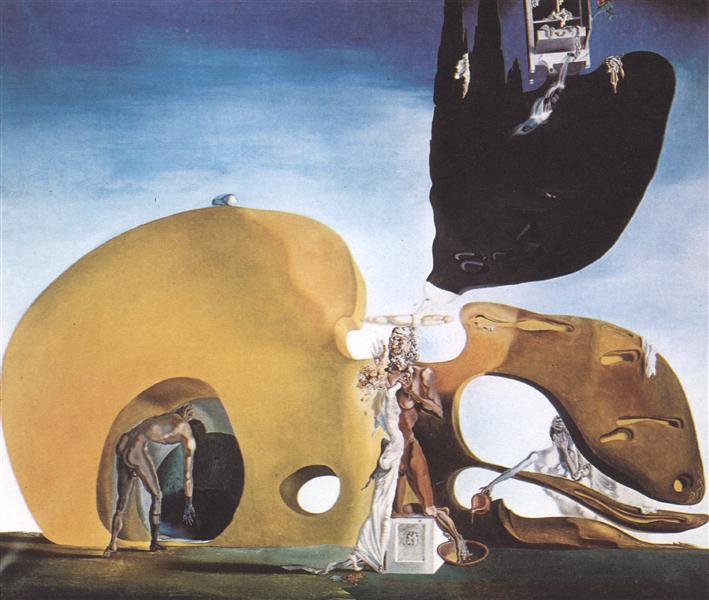What influences our desires and behaviors? We all intuitively believe there is a human nature, but when we try to describe aspects of it, it falls into the trap of clichés and self-fulfilling prophecy. We feel there must be something that holds humanity together in general biological wants and needs. What is a natural human desire, and if we knew them, could we use this to justify the ways that we act? Or use it to guide our decisions? Our understanding of basic human biology can help us make decisions about nutrition. Is there something we can learn about our psychological needs that can help us make social or emotional decisions?
There seems to be some core needs we all strive for, like eating, safety, friendship, and sexuality. But even those are so culturally bound that, if they were not such obvious needs for personal and genetic survival, it would be hard for us to say that they were “universal.” Is there a core need that lives underneath all the cultural baggage? If so, how do we understand it to guide our lives and understand others?
This is not just head-in-the-sky abstract questioning. We must not limit this topic to only academic discussion. We can talk about this as it relates to our own personal needs and motivations. Asking this question implies the reaching from the general to the individual. We can understand our actions by contemplating what “human nature” demands. We do this automatically, but a deliberate approach will be an advantage.
We confront the problem of trying to understand our needs and desires every day in choosing what to focus your attention on and what to take seriously. And the guidance of understanding what you want can help you in choosing the course of life in its many crossroads. Who should you spend your life with? What career do you want? Or how do you frame your general ethical principles? This is not a new dilemma. Robert Frost’s popular poem confronts it beautifully.
Two roads diverged in a yellow wood,
And sorry I could not travel both
And be one traveler, long I stood
And looked down one as far as I could
To where it bent in the undergrowth;
Robert Frost in “The Road Not Taken”
Without strategizing consciously how you believe human beings to be, you may continue unconsciously applying your folk-psychologies to the way people are and will always be. You could be excusing yourself for taking the more difficult choice. But understanding a well-rounded and humble theory of human nature could help you understand your place along with others.
The Infinite Complexity of Desires
If there is one thing all psychologists can agree on it is the utter complexity of the brain. No theory can yet unify all we have observed regarding the brain. Its compressed vastness and intricate mapping testify to how little we know of it. But the manifestations of this complexity occur in organized action which we can predict and try to understand in larger chunks.

A simple animal might be easier to understand in its motives, but humans have so many that they blur together. William James says that it is not that we have lost our instincts and motivated behaviors, we just have so many that they conflict and compete.
“The animal that exhibits [contradictory instincts] loses the ‘instinctive’ demeanor and appears to lead a life of hesitation and choice, an intellectual life; not however, because he has no instincts—rather because he has so many that they block each other’s path.”
To add to the complexity of the problem is the obvious fact that we learn our explicit behaviors. Bad experiences make us averse to similar situations and good experiences make us want more of them. There is nothing wrong with sticking to the emotions you have learned through the history of your life, but for you to grasp a deeper meaning of desire, you must realize that the learning of idiosyncratic motives is only a surface-level definition of what you truly are motivated by. What caused that learning to take place? That is what we seek when we try to understand our motivations. Your first love may be carried with you forever as something you want to repeat in future relationships. But what is it about that first love that was inherently loving?
We constantly have all these needs and desires waiting—patiently or impatiently—to get their say. Freud called the part of the mind, the id, “a cauldron full of seething excitements.” One way or another, the strongest of impulses will find their outlet. And that outlet will be a singular action that we often will conceptualize.
Reduction of Complexity
With all the complexity of the experienced brain, declaring what we think we want is to reduce the complexity to a single direction. All these competing desires, at any individual moment, must have a winner that we choose, or else we live “a life of hesitation” weighing the options. Whether the winner merely comes as a focusing of thought on a problem, or an action itself, for every moment is an object of attention.
And being self-conscious, we can apply what we think we know about human desire to guide our decisions. For us to declare what we want, is for us to take the seething excitements and connect them to a concept, deciding at a particular time what it is that you must pursue.
On the surface we know the things that we want, the pizza, the girl, the boy, the job, the status. But all these items symbolize another shapeless desire. We have learned that these things are desirable and fulfill some need, but what is that need? Looking through our individuality, we find what might be a universal human need, but how do we define it?

Evolution as a Tentative Solution
Perhaps our best theories which allow us to grasp the roots of human motivation is not scientific in the sense of controlled experiments. But it can and should be supported by the work of science. Evolutionary and anthropological theories can give us the benefit of understanding of human motivation.
The reason to pay attention to evolutionary psychology’s theories is not because they isolate all the elements of human motivation into microscopic variables, but that they present the variables in the form we want them in, as needs and the reasons for their genesis. This perspective groups our motivations according to their origins, purposes, the situations that cause them and the variety of actions provoked.
We do not need to look at the chemicals in the brain to explain certain behaviors or desires. There is a certain foolishness to saying that cake releases dopamine, and that is why you like it. The jump from chemistry to desire is a drastic one and not a very good one for understand why you want cake. But an evolutionary perspective can tell us how the body and brain have developed to serve biological functions and have modules of behavior that are relevant to in order to produce a certain category of behavior. Studying the anthropology of nutrition gets us to a simpler and more useful theory of a proper diet than studying the effects of individual nutrients and their functions alone. We require a slightly more holistic approach when trying to apply advice, but it is still important for the specifics to support the general claim. The same is true for the problems in psychology.
This can make something like the desire for certain foods be better explained by the caloric content of the foods and how that has evolved to be beneficial and therefore desirable. This is a simple example, but adding a social motivation is even more helpful to understand our desires. Evolutionary psychologists compare people to animals and find trends in “status-seeking” and how it connects to mate-finding. Knowing this can help explain the ways in which we act in order to find sexual partners, consciously or unconsciously. We can then see what behaviors and situations must be related to sexuality through studying theories in evolution.

Temperance and Reflection
But I do not suggest explaining behaviors in everyday life as if you were strictly an evolutionary psychologist. We are more complicated than that. Like I mentioned earlier, our obvious desires seem to be symbols of these root, biological desires. And as useful as evolutionary theories are, they do not explain everything about the behavior.
Our instinctive, evolved motivations are still very complex and even if we can fit our understanding of psychological evolution nicely with our actions. We still cannot justify our actions this way by making brash claims about human nature. We must be careful of misunderstandings. In the present time, most people who would hear this would think that we are inherently selfish and feel shame in that or feel justified in selfishness. However, we are still the same people who love and cherish things, it would be a cynical misinterpretation of evolution to assume this. Like Richard Dawkins says, it is a selfish gene, not a selfish person. Love can have evolved.
Rather than being a justification for our motivations, evolutionary perspectives can be a guide to the taxonomy of motives. Noticing that certain behaviors may be aimed at certain goals, may be just enough to bring you to awareness of your goals and your actions.



